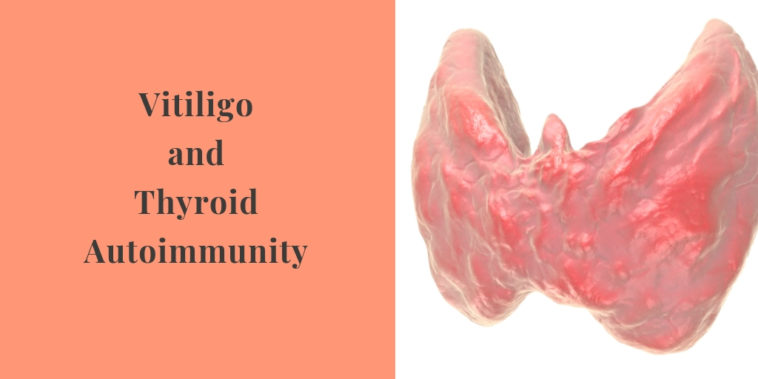Many theories have been proposed to unravel the complex pathogenesis of vitiligo. One of these theories is that the skin condition is associated with autoimmune thyroid disorders. This theory is sustained by several clinical and experimental evidence.
Since vitiligo is frequently associated with some autoimmune comorbidities, associated thyroid autoimmunity might play an active in triggering the depigmentation process in chronic skin disorder. However, all studies that establish a link between vitiligo and thyroid autoimmunity have been limited by sample size so far.
How is vitiligo connected to thyroid autoimmunity?
In many research studies, it has been found that patients with vitiligo have high frequencies of associated autoimmune disorders and autoimmune thyroid disorders (ATD) as the most frequently found comorbidities. Here, ATD is used to describe a group of diseases that are characterized by the presence of autoantibodies (an antibody produced by the immune system that is directed against one’s own proteins) directed against thyroid peroxidase (an enzyme produced by the thyroid gland), thyroglobulin (a protein made by cells in the thyroid) or thyroid-stimulating hormone receptor.
ATD can be or cannot be associated with thyroid dysfunction. Research points out that the risk for people with vitiligo to develop ATD is 2.5-fold higher compared to people without vitiligo. That’s not it. It has also been found that the risk to develop elevated thyroid antibodies is more than five times higher in people with vitiligo compared to people who are free of the chronic skin disorder. However, no study elaborates specific thyroid dysfunction in vitiligo patients. Still, many experts believe vitiligo patients should be screened for hyperthyroidism (when your thyroid gland produces too much of the hormone thyroxine), overt hypothyroidism (an increase in thyroid-stimulating hormone and a decreased thyroxine level) and subclinical hypothyroidism (when the body doesn’t produce enough thyroid hormones).
Treatment of Thyroid Autoimmunity in Vitiligo
Keeping the above-mentioned research findings in mind, clinicians should be aware of the possibility of thyroid function changes in people with vitiligo. A screening of ATD is recommended in patients with nonsegmental vitiligo. A line of treatment to address any thyroid disorder should be prescribed accordingly.
Pollutants, ionizing radiations, and other chemical substances can unfavorably affect the thyroid or other endocrine gland functions. Hence, a holistic approach to thyroid management can help individual pause the progression of vitiligo.

